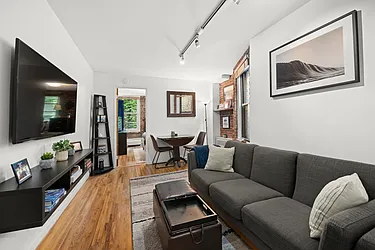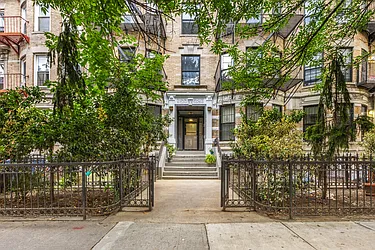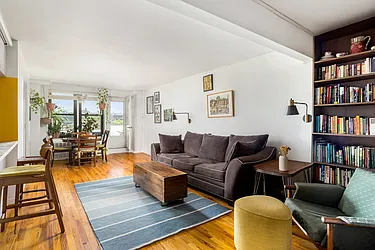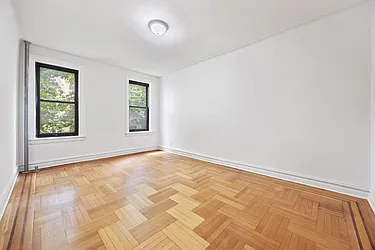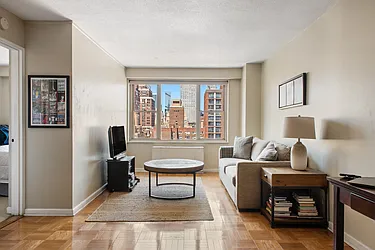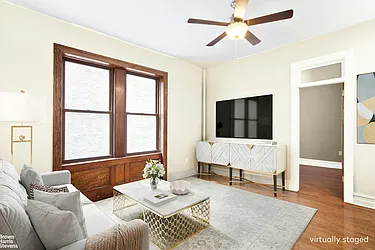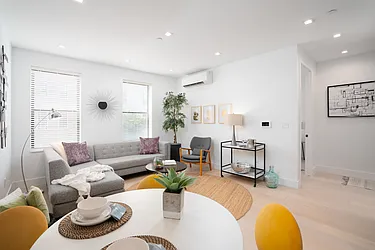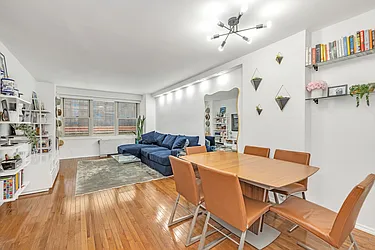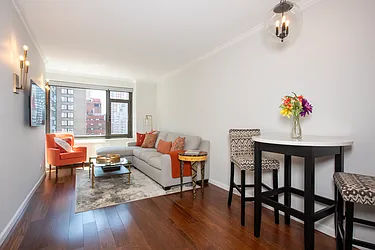
More NYC home sellers are taking losses on their investments, especially in Manhattan. (Getty Images)
As home prices in New York City decline for the third consecutive year, more home sellers are taking losses on their investment — and the losses are growing.
In 2019, the portion of home sellers citywide who sold their homes for below their original purchase price rose to 9.8%, from 7.4% a year earlier. The median loss amount rose, too, from $72,426 in 2018 to $76,078 last year.
Share of Manhattan Homes Sold at a Loss Doubled in a Year
Manhattan led the five boroughs in the portion of homes reselling for a loss, at 15.1%. It’s also where the share of homes sold at a loss grew the fastest, nearly doubling between 2018 and 2019. For comparison, between 2014 and 2018, 7.7% of homes citywide sold for a loss.
The Manhattan data is not surprising when you consider that in 2019, prices in the borough fell more than 5 percent year-over-year, the fastest pace on record. Price levels have declined steadily from the market peak of 2016-2018.
Meanwhile, prices in Brooklyn and Queens held at record highs, and the share of homes sold at a loss in these boroughs grew only marginally.
| Borough | 2018 | 2019 | Jan-Feb 2019 | Jan-Feb 2020 |
|---|---|---|---|---|
| Manhattan | 8.0% | 15.1% | 12.6% | 19.3% |
| Brooklyn | 5.6% | 6.2% | 6.3% | 6.4% |
| Queens | 6.3% | 7.8% | 7.6% | 7.5% |
Of the five neighborhoods where the most homes sold at a loss, in 2019, all were in Manhattan. The previous year, these neighborhoods were spread across the boroughs.
| Neighborhood | 2018 | Neighborhood | 2019 |
|---|---|---|---|
| Midtown | 24.3% | Midtown | 36.1% |
| Rockaways | 20.3% | Financial District | 30.1% |
| East New York | 16.5% | Flatiron | 25.8% |
| Riverdale | 16.0% | Chelsea | 17.6% |
| Financial District | 15.4% | West Village | 16.1% |
Condos Are Twice as Likely as Co-ops to Sell for a Loss
With prices falling in Manhattan and stagnating across the city, fewer sellers of both condos and co-ops are making profits year over year. However, condos are twice as likely as co-ops to sell for a loss. This is because condos are typically newer and more expensive than co-ops.
Most new developments are condos, and the glut of new and unsold condos has led to a buildup of inventory and competition among sellers that make selling at a profit difficult to sustain in these conditions. Our past research found that while prices for co-ops across the city have increased steadily since 2009, prices for condos began to dip starting in 2017.
| Unit Type | 2018 | 2019 |
|---|---|---|
| Condo | 8.2% | 14.2% |
| Co-op | 4.7% | 7.4% |
More Homes at the Bottom Half of the Market Are Selling at a Loss
The most expensive homes in the city are seeing the biggest declines in prices. The luxury market, or the top 20% of prices based on all closings in Manhattan in the fourth quarter of 2019, fell by more than 6% year over year. In contrast, prices in the bottom 20% of the market in Manhattan fell by less than 1%.
Despite these differences, the share of homes selling at a loss increased in the bottom half of the market as well. Of the bottom 50% of resales, 10.4% sold at a loss in 2019, compared to 9.6% in 2018 citywide. That’s between 1 to 2 percentage points higher than the share of homes sold at a loss in the market overall (which was 9.8% in 2019, and 7.4% in 2018).
Manhattan and Brooklyn 1-2BRs Under $800K on StreetEasy Article continues below
Share of Losses Likely to Grow in 2020
Losses mounted significantly in 2019, and the first two months of the new year signaled that yet more homes would sell at a loss in 2020 — even before the economic damage from COVID-19 took hold.
In January and February of 2020, 11.1% of homes sold at a loss, compared to 9.8% of homes sold during the same period in 2019. We expect this trend to continue.
Likewise, the COVID-19 pandemic is still unfolding, and we’ve yet to see its full impact on the real estate market. Sellers have not yet adjusted to the latest developments with more price cuts, but we have seen in the past that stock prices adjust to economic news faster than home prices. In the previous recession, stock prices bottomed out in 2009, while the housing market did not hit bottom until 2011. It remains to be seen if home prices in 2020 will follow the recent declines in the stock market.
Takeaways for Sellers and Buyers: Timing Is Key
Timing plays an important role in buying and selling. While timing the market is difficult, if not impossible, understanding where the market is now versus where it was when you purchased your home can make a huge difference.
For example, of buyers citywide who purchased homes at the height of the market, between 2015 to 2017, 14% sold their homes for a loss in 2019. That’s double the 7% who sold at a loss in 2018. In contrast, of those who purchased their homes between 2010 to 2012, fewer than 4% sold at a loss in both 2018 and 2019.
When, where, and what type of home you buy is a personal choice, and making a profit on your purchase is not the only priority. But using longer-term data can help you make informed decisions around buying and selling.
Sellers who purchased between 2015 to 2017 are in a tough position: They could cut their losses and sell now, or wait for home prices to appreciate again in the long run. Those who need to sell now will have to be flexible with pricing, because buyers have many other options.
New Yorkers who are planning to buy are in a good place, given that mortgage rates have hit record lows and inventory levels remain at all-time highs. However, those with a flexible timeline or who are uncertain may be wise to wait. Home prices in Brooklyn and Queens have stagnated at record high levels, while Manhattan prices are still declining — and these trends show no signs of changing.
How We Did It
We identified repeat sales by matching address data from public sale records from the New York City Department of Finance for transactions between Jan. 1 and Dec. 31 for 2018 and 2019, and between Jan.1 and Feb. 29 for 2019 and 2020. Units that sold for less than $100,000 and sales that were less than 180 days apart were not considered in the analysis.
—
Inspired to find your next place in New York? Whether you’re looking to rent or to buy, search NYC apartments on StreetEasy.


